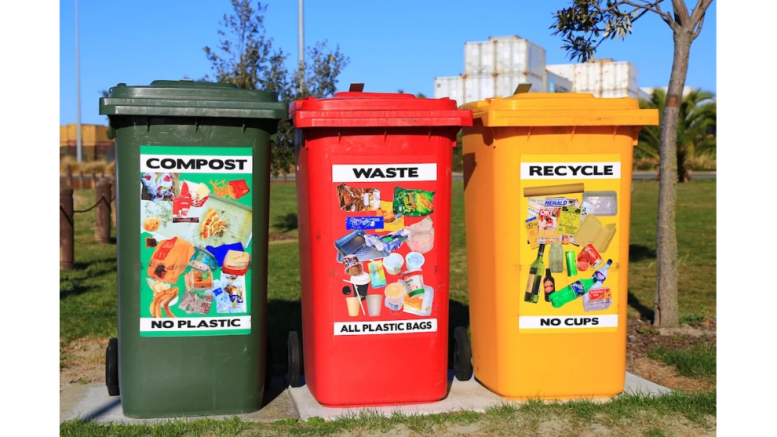India, with its burgeoning population and rapid urbanisation, faces a pressing challenge in waste management. As cities expand and consumption patterns evolve, the volume of waste generated has reached unprecedented levels, leading to environmental hazards and health concerns. In today’s High Time column, we delve into the waste management challenges confronted by Indian cities and explore innovative solutions that pave the way for a cleaner, greener future.
Health and the environment are intricately interconnected, with the well-being of individuals closely tied to the state of the environment. Environmental factors, such as air and water quality, biodiversity, and climate patterns, significantly impact human health. Exposure to pollutants, contaminated water sources, and changes in disease patterns due to climate change can lead to various health issues. Conversely, the health of ecosystems and their ability to provide essential services, such as clean air, water, and regulation of disease vectors, is vital for maintaining human health. The interdependence between health and the environment underscores the importance of adopting sustainable practices, pollution control measures, and conservation efforts to safeguard both human well-being and the health of the planet.
The Current Landscape: A Sea of Challenges
- Overflowing Landfills: The sight of overflowing landfills has become all too familiar in many Indian cities. The sheer volume of waste produced overwhelms existing disposal sites, leading to environmental degradation and health hazards for nearby communities. Policy level changes are required to overcome these challenges which include safe disposal, segregation of dry and wet waste as well as creating options for safely disposing electronic waste. While cities are on the brink of an infrastructure explosion, we have taken little or no measure to combat the waste it produces. The current infrastructure overdrive has taken AQI levels in big metro cities to hazardous levels.
- Inadequate Infrastructure: Many cities lack the necessary infrastructure for efficient waste management. Insufficient waste collection systems, outdated disposal methods, and a shortage of recycling facilities contribute to the mounting problem. We need to adequately invest and build infrastructure to effectively dispose waste in a way that it contributes to circular economy.
- Lack of Awareness and informal waste sector challenges: Public awareness regarding proper waste disposal and recycling is often lacking. Inadequate education on waste segregation at the source hampers efforts to implement effective waste management practices. The informal waste sector, comprising ragpickers and small-scale recycling units, faces numerous challenges, including exposure to hazardous waste and inadequate working conditions.
Innovative Solutions: Paving the Way for a Sustainable Future
Shifting from a centralised waste management model to a decentralised one is gaining traction. This involves establishing smaller waste processing units within communities, reducing the need for long-distance transportation and minimising environmental impact. Embracing technology can revolutionise waste management. Smart waste bins with sensors to monitor fill levels, route optimisation through GPS systems for waste collection vehicles, and the use of blockchain for transparent waste tracking are some innovative solutions being explored. Initiatives to raise awareness about waste segregation at the source are crucial. Community-based programs and educational campaigns can empower citizens to actively participate in waste reduction efforts.
Converting waste into energy is gaining popularity as a sustainable solution. Technologies such as anaerobic digestion and incineration can help generate electricity from organic waste, reducing the burden on landfills. Introducing financial incentives for recycling can motivate individuals and businesses to adopt sustainable waste management practices. Governments can collaborate with private enterprises to create reward systems for recycling initiatives.
Success Stories: Pockets of Progress
- Indore’s Cleanliness Drive: Indore, often hailed as one of India’s cleanest cities, implemented a comprehensive waste management plan. This included citizen awareness campaigns, strict penalties for littering, and a robust waste collection and processing system.
- Mysuru’s Zero-Waste Model: Mysuru’s zero-waste initiative focuses on reducing, reusing, and recycling. Through community involvement and innovative waste processing methods, the city has made significant strides in minimising its environmental footprint.
While progress is evident, challenges persist. Adequate funding, policy enforcement, and sustained public participation remain pivotal for the success of waste management initiatives. Additionally, addressing the informal waste sector’s concerns and integrating them into formal systems is essential for a holistic approach. Waste management in Indian cities requires a collective and concerted effort. As urban populations continue to grow, it is imperative to prioritise sustainable practices that reduce the environmental impact of waste. Through technological advancements, community engagement, and policy support, Indian cities can transform their waste management systems, creating cleaner, healthier environments for current and future generations. The journey towards sustainable waste management is an ongoing odyssey, but with innovation and commitment, Indian cities can pave the way for a brighter, cleaner, and more sustainable future.
The views and opinions published here belong to the author and do not necessarily reflect the views and opinions of the publisher.



Be the first to comment on "Navigating Waste Management Challenges: A Sustainable Odyssey for Indian Cities"